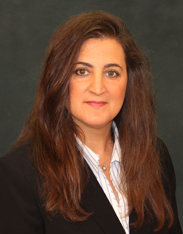Grand Challenge looks to bring more prosperity to high poverty, low literacy areas

What started as a push for Marengo County students to study in various medical fields and return to their home communities to practice has evolved into a proposal for a University of Alabama at Birmingham Grand Challenge.
If, after a lengthy process, the proposal is approved, Marengo County and the City of Birmingham will share $1 million a year for three to five years, said Dr. Janelle Chiasera, senior executive associate dean in the UAB School of Health Professions.
With the idea “Transforming Urban Rural Alabama into World Class Communities,” the grant proposal aims to develop a community-based approach to promote human rights and economic prosperity in areas of high poverty, low literacy and poor health.
Originally the idea was for the Demopolis area only, but it expanded to Birmingham so that what is developed could be “scalable” for any city or town in the country, explained Chiasera.
Many different groups would work together with the goal of having cities and towns in Alabama in the top 10 percent of K-12 rankings, college admission and graduation rates, healthcare rankings and economic development. Once proven in this state, the process could reach across the nation and around the world.
Speaking to some two dozen health, business, education and community leaders recently, Chiasera said such an ambitious goal “must be tackled by multiple people.”
UAB doesn’t have all the answers, she continued, but it has many experts to help direct the project. All of its schools, including education, health professions, engineering, business and the College of Arts and Sciences, would be involved.
The World Class Communities proposal was one of 83 originally presented to UAB for consideration. After the first elimination rounds, six remain. The World Class Communities project was given $30,000 to do the research on the final proposal before submitting it at the end of January 2019.
Between now and then, said Chiasera, an executive committee and four strategy teams will be set up to define the challenges involved in completing the grant and possible successful solutions that will continue long after the grant funding ends.
Chiasera stressed that the final proposal will be reviewed by people in the Demopolis area to see if it fits the needs of the community.
The proposal focuses on the two areas of education and health. “Economic development can only be achieved if Alabama’s communities are well educated, healthy and vibrant,” she said.
One of the ways the proposal suggests reaching those goals is through a community “hub,” a resource and activity center to bring residents, businesses and organizations together to improve the quality of life.
The hubs won’t be possible without the support of the community as well as the local governments and policymakers, said Chiasera. They would work with a team from UAB that will provide the technology, tools and expertise to make the hubs successful.

